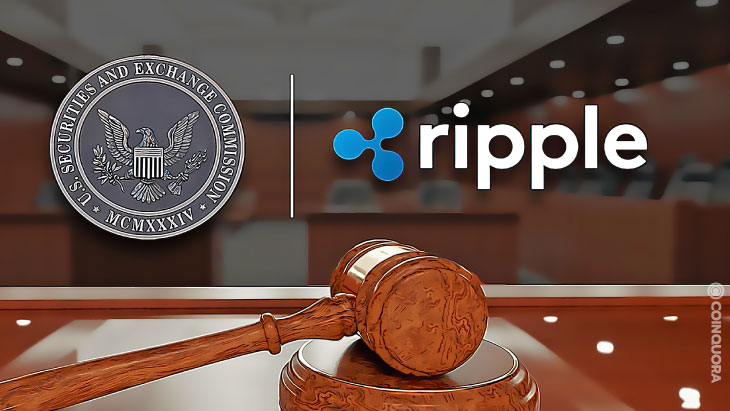- Ripple has filed a Motion to Compel regarding SEC’s deficient responses to Ripple RFAs.
- Jeremy Hogan says that this reminds him of previous RFAs that they filed.
- Ripple had filed a request for admission asking SEC about details of their employees trading XRP up until 2019.
Ripple Defendants have filed a ‘Motion to Compel’ regarding the US Securities and Exchange Commission’s (SEC’s ) deficient responses to Ripple Defendants’ Fourth Set of Requests for Admissions. Attorney Jeremy Hogan put up a Twitter post saying that this motion reminded him of the time they learned that SEC staff had bought and sold XRP up through March 2019.
Hogan further followed up with: Let’s go SEC lawyer – you only have 2 hours to file that attorney-client privilege brief!
This Request for Admission took me way back to when we learned that SEC staff bought and sold XRP up through March 2019!
PS. Let’s go SEC lawyer – you only have 2 hours to file that attorney-client privilege brief! pic.twitter.com/xqRdRQFvDF
— Jeremy Hogan (@attorneyjeremy1) May 19, 2022
In August 2019, Ripple filed a motion seeking to compel SEC to disclose whether its employees traded XRP as it tried to prove SEC didn’t consider digital assets as securities. SEC, however, had refused to provide this information.
Ripple Labs and SEC have been battling it out for quite some time now and the delay for response from SEC’s side is not new. Ripple CEO Brad Garlinghouse had stated earlier that SEC was dragging the case but added that despite all these roadblocks, Ripple had a record year in 2021 and a record Q1, 2022.
Even though XRP prices saw a spike at one point in the last month, it too, along with the rest of the market, has fallen. However, it is noteworthy that it has fared better than most other coins. At the time of writing, XRP is at $0.406620, down -2.4% in the past seven days.
For the uninitiated: In 2020, SEC had sued Ripple Labs for issuing and selling unlicensed securities — XRP tokens — to the public. The crypto world has been following the SEC vs. Ripple lawsuit since then. The outcome of this case will establish a precedent, and the findings here are expected to help clear the regulatory landscape for future initial coin offerings.


